Editor Kevin Cookman and contributor Ryan Michaels bought into the late-year release hype of Francis Ford Coppola’s THE GODFATHER, CODA: THE DEATH OF MICHAEL CORLEONE. Ryan has seen the theatrical cut eight times. This was Kevin’s first viewing. Coppola’s post-70s works, often financial and critical disappointments, are no strangers to post-release appraisals, but is this notorious sequel worth critically reassessing?
Kevin Cookman: We find ourselves here on a very odd occasion, Ryan. In the dire straits of 2020, we have decided to watch THE GODFATHER PART III. Not only have we seen THE GODFATHER PART III, but we’ve seen the newly released director’s cut, THE GODFATHER, CODA: THE DEATH OF MICHAEL CORLEONE. Have things just gotten so desperate that we care about this?
Ryan Michaels: Coppola has been doing this late-career project where, just last year, he took APOCALYPSE NOW and recut it, and then he took THE COTTON CLUB and recut it, so there’s some sort of final posterity project. He’s a type-A control freak who would like the record to be straight on his GPA, so to speak. This is where THE GODFATHER PART III comes up, God forbid.
KC: Did he start doing re-edits after George Lucas released his special editions?
RM: Lucas did STAR WARS in ’97 and Coppola first recut APOCALYPSE NOW in 2001, so that about lines up.
KC: As soon as you see your peers tidying up their lapses, you feel the spur in your step to get back in there and accomplish what you originally set out to, which is weird to attribute to Coppola, a director largely known to burn money in service of making whatever he wanted.
RM: In some ways THE GODFATHER PART III is the inversion of that. Coppola spent much of the ‘80s fleeing financiers and debtors and the only reason this movie exists is because he ran out of money. This is not our surmising, this is Coppola on record.
KC: So I had never seen this film before, largely because of the reputation that precluded it. THE GODFATHER and PART II are masterpieces, and then your dad tells you, in the same breath, that, by the way, PART III is dogshit. When you hear that and see the runtime, it’s an easy outcome: I get to cross a film off the list of potential cinephile homework. I was also wanting to preserve the memory of these films that are crucial to the both the American and masculine canon; you want to keep these movies that taught you so much, for better or for worse, in as romantic a spotlight as possible.
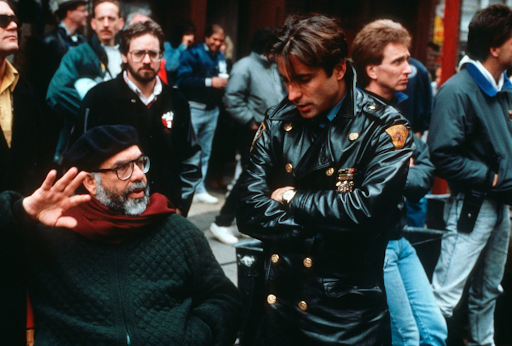
RM: Now that you’ve punctured that hazy, romantic memory, what did you think of THE GODFATHER, CODA?
KC: I sincerely wish I had never seen this film. There is something so invasive about this movie’s existence and its labored self-meaning. This is an obvious payout. It’s Lil Wayne selling his masters to Universal so he can pay off the aggrieved manager and the multiple lawsuits: we call that a “Francis Ford Coppola,” baby. This is the most cynically made piece of art you could ever imagine, and yet, for some reason, Coppola has decided to attach his own 1:1 confessional on his personal failings as a father, as a husband, as an Italian-American, and as a filmmaker. He fitted an asset liquidation as a redemption arc parable for the personal responsibility he feels he has in the death of his son, Gian Carlo. It is a messy, gross, vacuous combination that feels wrong-headed, nearing perverse given the family members he casts.
RM: So I’ve seen this film about eight times.
KC: That’s a joke? That’s a joke.
RM: No.
KC: Why?
RM: I started watching these things young, and when you get on a roll, you tend not to stop.
KC: Did you mix up the numbers? Were the DVDs in the box set out of order? Did you accidentally think this was PART II?
RM: When you’re younger, you make the mistake of watching the entire trilogy, but as you grow older and wiser, you learn that you only do one and two.
KC: Even when I was young, I knew I didn’t like watching EMPIRE STRIKES BACK much. It wasn’t as fun as NEW HOPE or RETURN OF THE JEDI, therefore, it skipped the rotation. Goddamn, so you just went full steam ahead?
RM: Okay, okay, so even if you think this was made under labored conditions, you don’t think that Coppola’s insertion of the personal is enough to bail it out? I agree that the fusion does not work out, but it’s also the only way to dig him out. Again, it doesn’t, but it could’ve.
KC: Exactly, it doesn’t. I don’t care about the motive or intent going in, which is already demented. You want to play the hits when you want to make a profitable return on the memory of a property this mythic, and this certainly does that. It plays like a Netflix reunion special: you get some of the cast members back, they’re thrown into an uncomfortably long movie, and the unlikable new characters may take up too much screen time, but you at least get to see all your favorites nearly 20 years later. If there’s any satisfaction to get from PART III, it’s that hollow nostalgia trip. Cinematographer Gordon Willis is making Caravaggios again, and it’s striking to behold, but in context? These images are deadened. The smoky, oily haze of the first two feels like a filter here. None of this is genuine.
RM: What I think is special about the first two GODFATHER films is that they are basically American Visconti. It’s finding the operatic in this ‘70s Hollywood grammar, and when you jump with Gordon Willis to the ‘90s, there’s obviously an oomph that is lost in the mix. The issue is mainly with structure. A lot of the elements are there. There is a perversion in this movie that is complementary to the first two while different. The Shakespearean concepts of the bastard returning and incest within the family revealing deeper unrest are interesting! All of this falls flat because, simply put, the script is a fucking mess. It doesn’t understand if it wants to be a 90-minute movie or a three-hour-30-minute movie. We’re stuck in the middle and it belly flops.
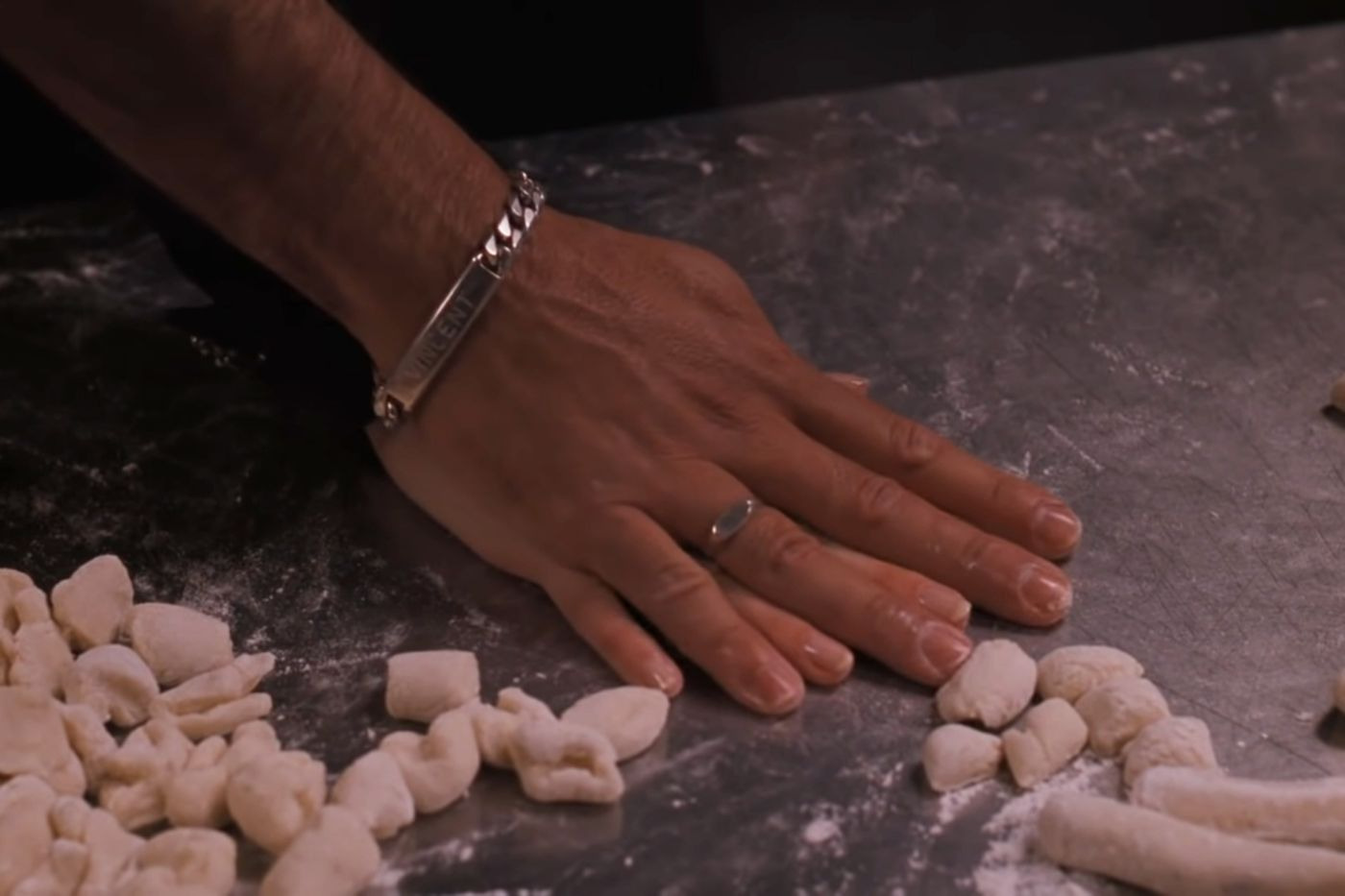
KC: I really enjoy seeing what legitimacy means to Michael and how he’s gone about manifesting Don Vito’s wishful aspirations of the Corleone name standing amongst those of U.S. presidents and American royalty. The Visconti connection is spot-on, because each of these films open up with the ending of THE LEOPARD, that’s how we infiltrate these families each time. PART III’s opening is appropriately very ugly. We’ve gone from the lavish upstate New York feasts to a chintzy banquet in the Corleone townhouse manor directly across the river from Manhattan. It’s not even a banquet, it’s a buffet. No more tough guys, it’s all lawyers. Michael has shaped the mob into a Fortune 500 company.
RM: If I’m not mistaken it’s close to Epstein’s house, 77th Street.
KC: Dear God. Connects with the Sofia subplot. Wait, so Ryan, Mr. Eight-Times-Andy, you do or you don’t like this movie?
RM: What I like the most about it is, and this is found particularly in CODA, the idea that when an evil man reaches the end of his life, the worst thing he could do is remember. He can be locked up within himself, and in some ways a longer life may be the greatest punishment of all. That’s a brilliant kernel of an idea for this film, but a lot of the botched writing here is due to Coppola not writing Corleone dialogue. He’s writing Al Pacino dialogue. Michael does not explode in the previous films. Pacino explodes in PART III. There is a serious miscalculation in how Michael would have aged, and it completely throws the power dynamics of the family as they should stand at this point.
KC: It’s bizarre that Coppola went into this thinking of it as an epilogue when every character throughline screams of an Act III pay-off. When Michael finally explodes, the several times he does, it feels profoundly out of character. Who’s acting more like Michael is Talia Shire as Connie. She’s playing the exact type of steely composure one would expect from this life of continued sin. It’s a fascinating turnaround from where we last saw her. Why is Connie taking that role?
RM: Robert Duvall turned down the money.
KC: And so Connie gets Tom Hagen’s pathos.
RM: Filmmaking, baby. There’s another kind of unexplored, but delicious irony in this movie, which is that in Michael’s quest for legitimacy, he falls into a racket far more foul and fucked up than his ever could’ve been: the Vatican’s.
KC: Speaking of, I love that when Michael confesses his sins, he’s unleashed such undiluted spiritual evil that God rejects it and ends up striking down the Pope instead with this stray bullet of guilt.
RM: THE GODFATHER PART III could’ve been an amazing chamber piece if it was just Michael confessing his sins in that courtyard. Characters come in and out, like a play or as if he’s held in court, and then somehow we jump straight into the opera finale. It’s 90 minutes and an actual coda.
KC: You just pitched a Fellini.
RM: There’s a tightness to it, I see it closer to a Bergman. Again, this is all a tantalizingly perverse set-up expanding upon the preceding films, but it floats.
KC: Vito Corleone nearly dies in a dirty hit at a street market, and then decades later, his son is a personal friend of the Pope. Those are the makings of the grandest drama. The entire film should carry the heft of the opera sequence as soon as you get involved with the Vatican, but the film plays it off with such normalcy even as the story presents itself as heightened genre fare. There are setpieces ripped straight from a Zorro serial: Andy Garcia disguised as a police officer riding away on horseback after unleashing rounds into a rival and that meatheaded helicopter assassination –
RM: At Trump’s Atlantic City casino, by the way.
KC: Perfect. Makes it even cornier. THE GODFATHER PART III is struggling to implement a post-80s action understanding of what “the mob movie” is, but it’s so much more depressing because it’s not a director who learned from Coppola, it’s Coppola himself trying to keep up with the times. He gets washed. This is the same year as GOODFELLAS. Your peers just brutalized you.
RM: The lone performer overlapping in both of those films is of course –
RM and KC: Catherine Scorsese.
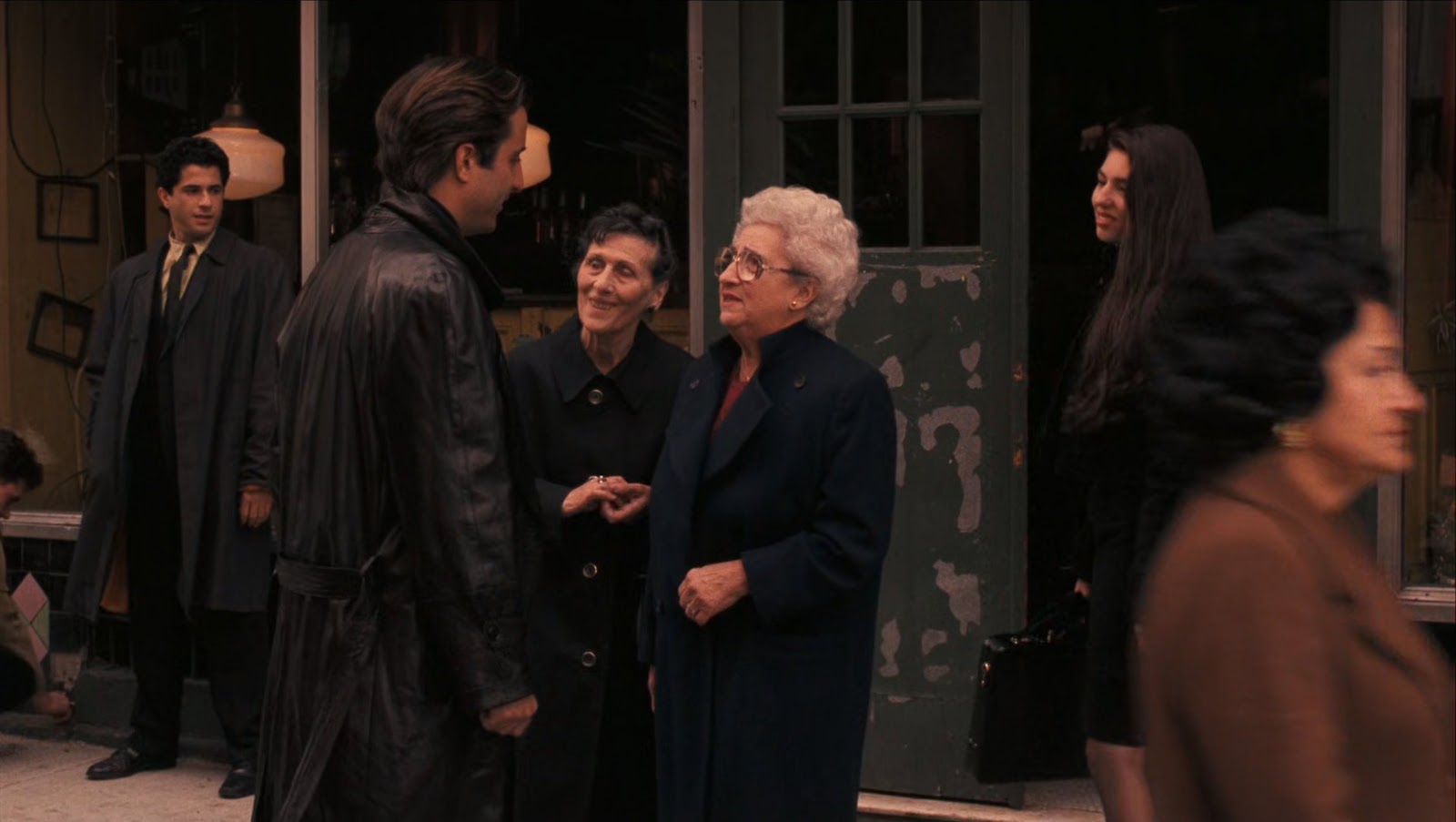
KC: I’ve only seen CODA. You’ve now seen both cuts. Cue me in on both the differences and improvements, if there are.
RM: Strictly the beginning and the ending have been altered. The recut now opens in the Vatican with Michael seeking legitimacy in an echo of the openings of the previous films, this newly created mirror reflecting across time. That scene was originally placed 30 minutes into the film. The main difference, and to my mind the main improvement, is that Michael died in the original. In CODA, he’s forced to live: there are fates worse than death.
KC: There’s a reason that all of this energy that could’ve gone into a GODFATHER PART III appraisal in the last couple years has gone towards RUMBLE FISH or BRAM STOKER’S DRACULA instead.
RM: Because they’re good films!
KC: They’re good films that got shit on out the gate and I feel like there’s still more Coppolas that have that tainted fate that I’m surprised weren’t pushed to the front of the line before THE GODFATHER PART III.
RM: He’s 81.
KC: Is this similar thinking to 1989’s where a third GODFATHER film presented itself as a juicy cash cow, one last check to cash in 2020 touting the promise that his greatest failure is now fixed?
RM: He’s playing for legacy. I don’t know what the money’s like for a mid-pandemic DVD.
KC: This is the one that tarnished it all. He had an interesting, big-budget Hawksian run in the ‘80s making just about anything that crossed his mind, and then comes this film and it jolts everything to a screeching halt. The language surrounding Coppola gets icy; by the time DRACULA comes out, the detractors come at it with pitchforks and torches.
RM: This may be the most hated movie with a best director and picture nomination.
KC: No doubt. If I had a GODFATHER PART III to my name, I would also want to do my very best to fix it before I went my way out. I do not think it’s paid off here. Given all the context, it’s only made the final product more grotesque. Removed from Coppola’s personal life or the business behind it, THE GODFATHER PART III is a mediocre final gasp at reclaiming one’s former glory. It’s a Rocky Balboa moment of taking up the gloves one last time for an exhibition match and getting wiped out on the world’s stage. I truly want to reinforce that I wish I had not done this to my own personal image of Francis Ford Coppola. I entered with an open mind, but THE GODFATHER PART III is once again tainting a legend’s status.
RM: Go watch ONE FROM THE HEART, go watch RUMBLE FISH, go watch BRAM STOKER’S DRACULA.



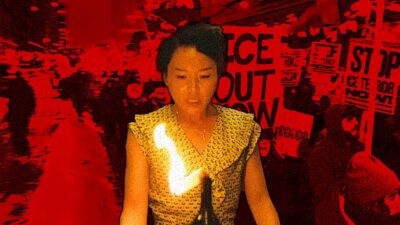
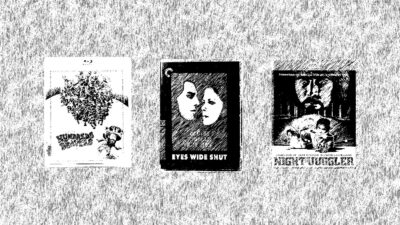





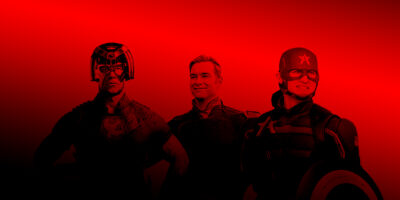
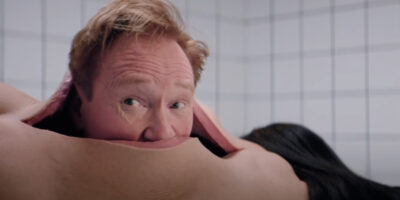



Comments